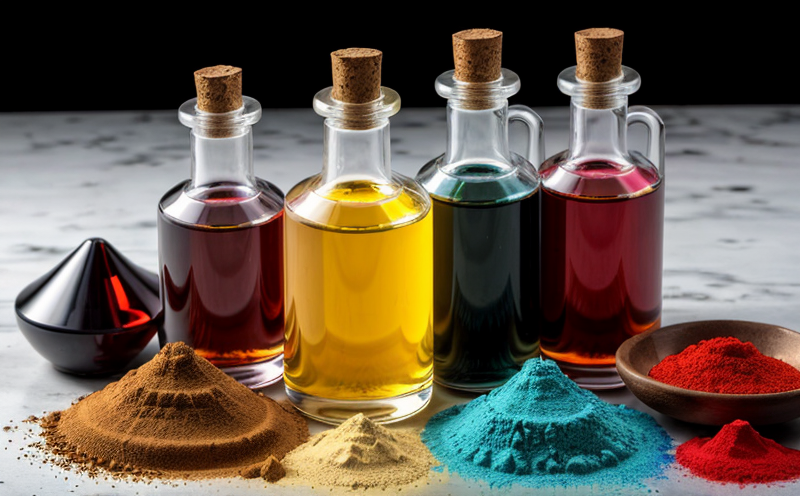ISO 10720 Determination of Hydrogen in Titanium
The determination of hydrogen content in titanium alloys and pure titanium is crucial for ensuring product quality and compliance with international standards. ISO 10720 provides a standardized method to accurately quantify the hydrogen content using gas chromatography (GC). This service ensures that our clients receive reliable, reproducible results that are critical for R&D, quality assurance, and regulatory compliance.
The process involves several key steps: sample preparation, instrumental analysis, and data interpretation. The first step is meticulous sample preparation to ensure a representative sample of the titanium alloy or pure titanium being tested. This may involve cleaning the specimen with solvents like methanol or acetone to remove any residual contaminants that could interfere with the hydrogen detection.
The analytical process utilizes gas chromatography equipped with a flame ionization detector (FID). The sample is heated in a platinum crucible, and the volatilized hydrogen is carried through a capillary column by an inert carrier gas. The FID detects the hydrogen ions produced when the hydrogen passes through a flame, providing a quantitative measure of the hydrogen content.
Accurate interpretation of the results requires understanding the calibration curve generated from standard samples with known hydrogen content. This allows for precise quantification and reporting of hydrogen levels. Compliance with ISO 10720 ensures that our clients receive reliable data that can be used to make informed decisions about process adjustments, quality control measures, and regulatory submissions.
Our laboratory adheres strictly to this international standard, ensuring that every test is conducted under controlled conditions and reported in accordance with the specified acceptance criteria. This service is particularly important for industries where the presence of hydrogen in titanium can lead to embrittlement or other adverse effects on material properties.
The precision and accuracy of ISO 10720 are critical, especially in high-stakes applications such as aerospace and medical devices. The method provides a quantitative measure that can help prevent costly failures due to hydrogen-induced degradation. By offering this service, we contribute to the reliability and safety of products across various sectors.
The importance of this test cannot be overstated for industries where even trace amounts of hydrogen could have significant implications on material performance. From aerospace components to medical implants, ensuring that hydrogen levels are within acceptable limits is paramount. Our expertise in this area allows us to provide reliable data that supports informed decision-making and compliance with international standards.
Why It Matters
The determination of hydrogen content in titanium using ISO 10720 is vital for ensuring product quality and safety, particularly in high-stakes applications. Hydrogen can have a detrimental effect on the mechanical properties of titanium alloys, leading to embrittlement and potential failure under stress.
- Industry Applications: Aerospace, medical devices, automotive, nuclear energy.
- Competitive Advantage and Market Impact: Ensures compliance with industry standards, enhances product reliability, and supports regulatory requirements.
The accurate measurement of hydrogen content is essential for maintaining the integrity of titanium alloys used in critical applications. By adhering to ISO 10720, we ensure that our clients receive reliable data that can be used to make informed decisions about process adjustments and quality control measures.
Compliance with international standards like ISO 10720 is crucial for industries where the presence of hydrogen in titanium can lead to embrittlement or other adverse effects on material properties. This service supports the reliability and safety of products across various sectors, enhancing competitive advantage and market impact.
Industry Applications
- Aerospace: Ensuring the integrity of components that must withstand extreme conditions.
- Medical Devices: Guaranteeing the quality of implants and devices used in human bodies.
- Automotive: Enhancing durability and performance of automotive parts.
- Nuclear Energy: Maintaining safety and reliability in nuclear applications where material integrity is critical.
The accurate measurement of hydrogen content using ISO 10720 is essential for ensuring the quality and safety of titanium alloys used in these high-stakes industries. By providing reliable data, we support informed decision-making that can prevent costly failures and ensure compliance with international standards.
Competitive Advantage and Market Impact
- Compliance: Ensuring adherence to industry standards enhances reputation and trustworthiness.
- Risk Management: Reducing the risk of material failure improves product reliability and customer satisfaction.
- Regulatory Compliance: Meeting regulatory requirements is essential for market access in competitive sectors.
- Quality Control: Providing accurate data supports informed process adjustments, enhancing overall quality.
The ability to accurately determine hydrogen content in titanium using ISO 10720 provides a significant competitive advantage. By ensuring compliance with international standards and supporting regulatory requirements, our clients can enhance their reputation, reduce risk, and ensure product reliability. This service is crucial for maintaining market competitiveness and achieving long-term success.





